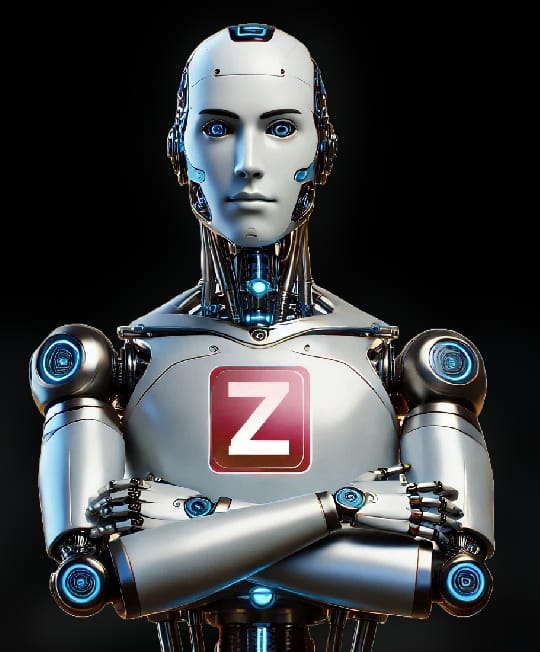The Big : AI’s Growing Role in Marketing
As marketers, we’re always looking for ways to improve our work and connect better with people. One of the biggest influences right now is Artificial Intelligence, or AI. It’s not just a buzzword anymore; it’s becoming a practical tool that can help us with many different tasks.
Think about how much data we deal with every day – customer information, website visits, social media interactions, and so much more. AI is really good at processing this kind of data and finding patterns that we might not see on our own. This can lead to better decisions and more effective marketing campaigns.
Looking ahead to 2025 and beyond, it’s clear that AI will play an even larger role in how we plan, execute, and measure our marketing efforts. Understanding how AI is being used and where it’s heading is important for staying relevant and successful in our field.
How AI is Changing Marketing Right Now
Making Sense of Data
One of the most immediate ways AI is impacting marketing is through data analysis. We collect tons of data, but making sense of it all can be overwhelming. AI tools can quickly analyze large datasets to identify trends, understand customer behavior, and segment audiences more effectively.
For example, AI can help us understand which marketing channels are performing best, which types of content resonate most with different customer groups, and even predict which customers are most likely to make a purchase. This kind of insight allows us to allocate our resources more wisely and create more targeted campaigns.
Personalizing Customer Experiences
Customers today expect personalized experiences. They don’t want to feel like they’re just one of many. AI makes it possible to deliver highly personalized content, product recommendations, and offers at scale.
Think about websites that recommend products based on your browsing history, or email campaigns that tailor messages to your specific interests. AI algorithms power these experiences by analyzing individual customer data and predicting what they are most likely to respond to. This level of personalization can significantly improve customer engagement and conversion rates.
Automating Repetitive Tasks
Many marketing tasks are repetitive and timeconsuming, like sending out emails, scheduling social media posts, or analyzing basic campaign performance. AIpowered automation tools can handle these tasks, freeing up marketers to focus on more strategic activities like planning and creative development.
This doesn’t mean AI is replacing marketers. Instead, it’s acting as a helpful assistant, taking care of the routine work so we can concentrate on the things that require human creativity and critical thinking.
Improving Content Creation
AI is even starting to help with content creation. While it’s not yet capable of writing truly original or deeply creative content, AI tools can assist with tasks like generating basic text for product descriptions, writing email subject lines, or even creating simple social media posts. They can also help with tasks like summarizing long articles or generating different variations of headlines to test.
These tools can be especially useful for generating content at scale, allowing marketers to produce more material in less time. , it’s important to remember that human oversight is still necessary to ensure the quality and relevance of AIgenerated content.
Looking Ahead: AI in Marketing in 2025 and Beyond
More Sophisticated Prediction
As AI technology advances, its ability to predict future outcomes will become even more sophisticated. Marketers will be able to use AI to forecast sales trends with greater accuracy, predict customer churn before it happens, and even anticipate the impact of different marketing strategies before they are implemented.
This predictive power will allow marketers to be more proactive and make datadriven decisions that can significantly impact the bottom line.
HyperPersonalization
We’ve talked about personalization, but in the future, AI will enable hyperpersonalization. This goes beyond simply recommending products based on past purchases. Hyperpersonalization involves tailoring every aspect of the customer , from the initial touchpoint to postpurchase support, based on a deep understanding of individual customer needs and preferences.
Imagine a website that completely changes its layout and content based on who is visiting, or an email campaign that adapts its tone and messaging in realtime based on how the recipient is interacting with it. This level of personalization will create incredibly relevant and engaging experiences for customers.
AIPowered Marketing Strategy
Beyond assisting with tasks, AI will increasingly play a role in shaping marketing strategy itself. AI tools will be able to analyze market trends, competitor activities, and customer sentiment to identify new opportunities and recommend strategic approaches.
This doesn’t mean AI will make all the decisions. Human marketers will still be responsible for setting goals, defining brand identity, and making the final strategic choices. , AI will provide powerful insights and recommendations to inform those decisions.
New Forms of Customer Interaction
AI is also paving the way for new forms of customer interaction, such as chatbots and virtual assistants. These tools can provide instant customer support, answer questions, and even guide customers through the purchase process.
As AI becomes more sophisticated, these interactions will become more natural and humanlike, providing a and convenient experience for customers.
Getting Ready for the Future
For marketers, the key to success in the age of AI is to understand its capabilities and limitations. It’s not about fearing AI or thinking it will replace us. It’s about learning how to work with AI tools to enhance our skills and achieve better results.
This means staying informed about the latest AI developments, experimenting with different AIpowered tools, and developing the skills needed to interpret AIgenerated insights and apply them effectively.
AI is not just a technological trend; it’s a fundamental shift in how marketing is done. By understanding and embracing this shift, marketers can position themselves for success in 2025 and beyond.
